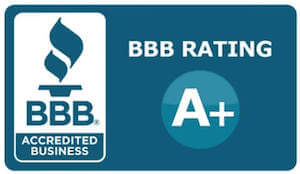- Study up — Find out about license and insurance requirements for contractors in your state. And before you call a contractor, know the model of your current system and its maintenance history. Also make note of any uncomfortable rooms. This will help potential contractors better understand your heating needs.
- Ask for referrals — Ask friends, neighbors, and co-workers for contractor referrals. You can also contact local trade organizations for names of members in your area.
- Call references — Ask contractors for customer references and call them. Ask about the contractor’s installation or service performance, and if the job was completed on time and within budget.
- Find special offers — A heating and cooling system is one of the largest purchases you’ll make as a homeowner. Keep your costs down by checking around for available rebates on energy-efficient ENERGY STAR qualified heating and cooling equipment.
- Look for ENERGY STAR — ENERGY STAR qualified products meet strict energy efficiency guidelines set by the U.S. Environmental Protection Agency and offer significant long-term energy savings. Contractors should be able to show you calculations of savings for ENERGY STAR heating and cooling equipment.
- Expect a home evaluation — The contractor should spend significant time inspecting your current system and home to assess your needs. A bigger system isn’t always better; a contractor should size the heating and cooling system based on the size of your house, level of insulation, and windows. A good contractor will inspect your duct system (if applicable) for air leaks and insulation and measure airflow to make sure it meets manufacturers specifications.
- Get written, itemized estimates — When comparing contractors’ proposals (bids), be sure to compare cost, energy efficiency and warranties. A lowest price may not be the best deal if it’s not the most efficient because your energy costs will be higher.
- Get it in ink — Sign a written proposal with a contractor before work gets started. It’ll protect you by specifying project costs, model numbers, job schedule and warranty information.
- Pass it on — Tell friends and family about ENERGY STAR. Almost one-quarter of households knowingly purchased at least one qualified product last year, and 71% of those consumers say they would recommend ENERGY STAR to a friend. Spread the word, and we can all make a big difference.
- Get the ENERGY STAR Guide — For complete information on keeping your home comfortable year-round, read the ENERGY STAR guide.
In English— A Guide to Energy-Efficient Heating and Cooling (1.38MB).
En Espanol— Guía para la Eficiencia de Energía en la Calefacción y el Aire Acondicionado (2.5MB).
Energy Star – U.S. Environmental Protection Agency – U.S. Department of Energy


